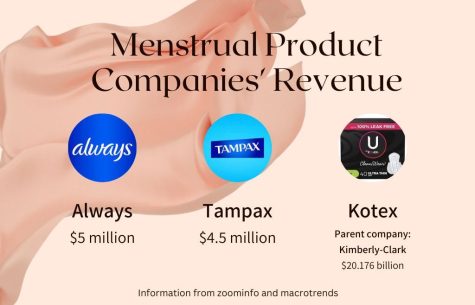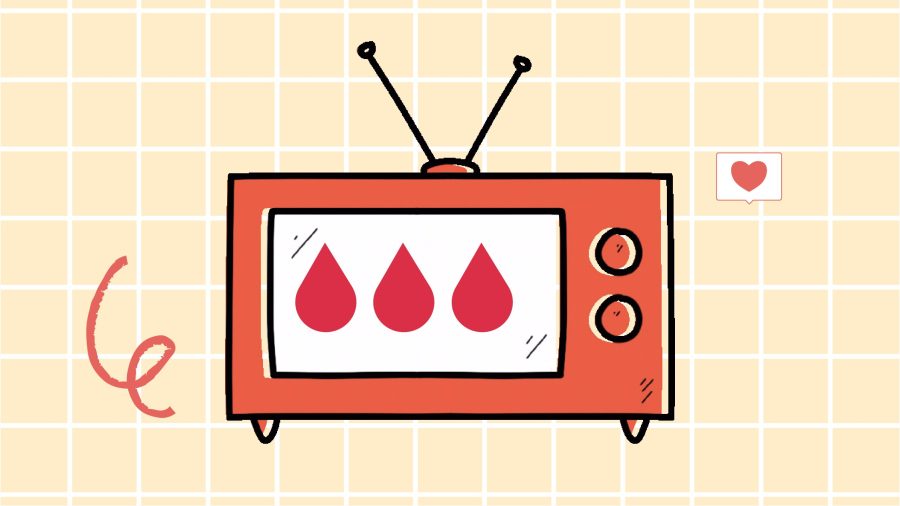Period prejudice: The stigma with menstrual product advertising
Menstrual product advertisements play a significant role in advancing menstruation stigma. The use of marketing tactics that emphasize the secrecy of periods and negative portrayal of the menstrual process can affect the attitudes towards the natural process. Several studies also uncovered a series of consistent themes within period product advertisements that reinforce the idea of women staying at home instead of going out to public spaces when on their cycle. These negative attitudes can involve other issues related to the stigma of menstruation, such as period poverty and the shame of asking for health services, causing a detrimental gap of awareness for the opposite sex, and even women.
December 15, 2022
Menstrual products become essential during the time of the month when various brands line up the period product aisle. Different companies advertise their products as tools to aid women while dealing with their period, but their marketing tactics actually contribute to negative perceptions about menstruation. Advertisers create media that can include portrayals of women in their menstruation cycle or the effectiveness of the products on their health. Through methods of advertising their products, companies push themes of menstruation as a stigma, or worse, a taboo, simply to gain profits. These themes of secrecy and association with dirtiness present themselves consistently within advertising. Additionally, the emphasis on the negative aspects of menstruation can contribute to the advertising of the product’s effectiveness. Companies‘ reliance on consumer behavior override the importance of providing positive portrayals and menstrual health education.
Period product advertisements put emphasis on keeping the mere sight of periods secret. Advertisements offer products that mask period blood and create the notion of hidden periods. A study done by Kulthum Mathews from the University of the Western Cape explains how participants discovered a pattern of how advertisements showed women as happy when given the ability to carry out their period discreetly. Reinforcement of menstruation secrecy can relate to the notion of not accurately displaying period blood in the media. Advertisements demonstrate period blood on products as a blue liquid substance instead of using accurate traits of red, period blood. The views on the appearance of period blood as a taboo become visible with these marketing tactics.
“I think menstrual ads push for menstrual stigma by advertising periods as something that needed to be covered up rather than showing its effectiveness. For example, some ads show period leaks as something embarrassing, while it happens to everyone,” junior Gina Zheng said.
A study by Arpan Shailesh Yagnik uncovered that advertisements push negative portrayals and stereotypes of menstruation. Advertisements pushed narratives of women’s absence of social activities and women’s inability to work while on their period. This can reinforce the stigma that women act differently than they usually do and should remain confined at home while on their period, as opposed to enacting their regular routine. The inability to work leads women to question their abilities when on their period and supports the stigmatized idea that women should stay home while on their period instead of out in public areas.
Matthews’s study continues and finds that menstrual product advertisements exploit the concern of menstrual hygiene and push the idea of their product’s ability to solve the hygiene issue. Menstruation stigma relates periods as a dirty process, leading to misconceptions of the urgency to clean the body using different methods. Advertisements propel the thought of women’s bodies as unclean while on their period and present the product as a tool for cleaning the body.
Others can argue that companies possess disinterest in putting menstrual stigma in their advertisements. Although conveying said stigma may not remain the true intention, advertisements’ effect on public opinion stays significant. Advertisements can influence consumers’ views on purchasing products and influencing buying habits. They can also become a source women look to as an educational source for periods and gain information from. Yagnik’s study also found that companies’ roots of greed influence their advertising actions to push negative ideas about menstruation. Menstrual product companies also rely on consumer behavior to gain revenue. Always, a prevalent menstrual product company generated $5 million off of sales, putting prominence on the role of consumer behaviors to continue gaining profits.

With marketing and advertising media possessing effects to emphasize menstruation stigmas, the importance of addressing their negative attributions on health becomes evident. The secrecy stigma and the view of periods as dirty can prevent the outreach of obtaining health services, which itself takes part in the growing inequality problem of period poverty. This can become dangerous as women may not receive the menstruation medical help needed due to the stress of discreteness or not wanting their image tarnished with the viewed tainted process.
“Stigma is definitely dangerous and makes significant contributions to the issue of period poverty. Women should be able to get the health they need without feeling punished or uncomfortable for it. Especially with the activism around women’s health, this is an issue that should be addressed more,” junior Kesh Harmes said.


















